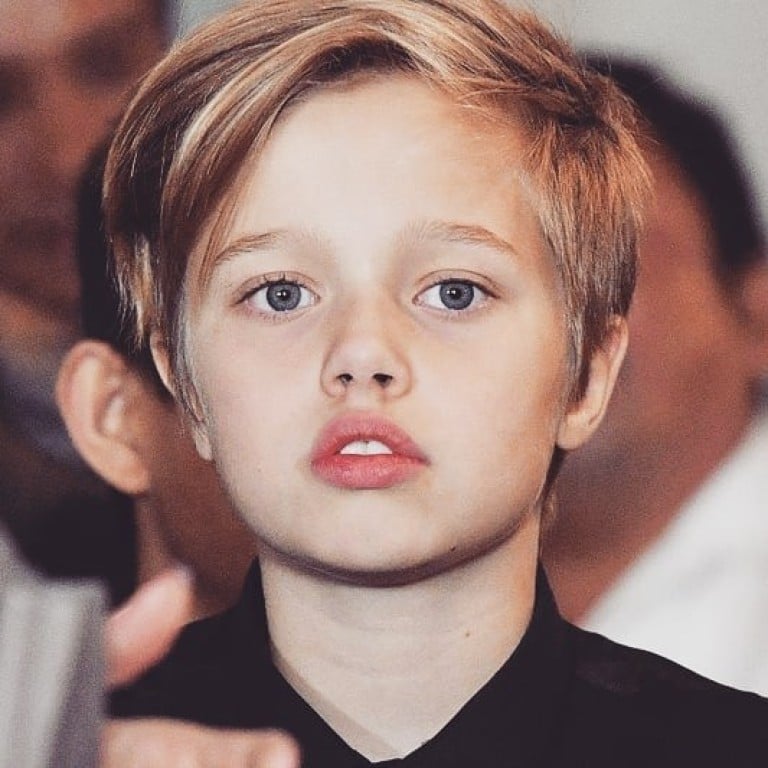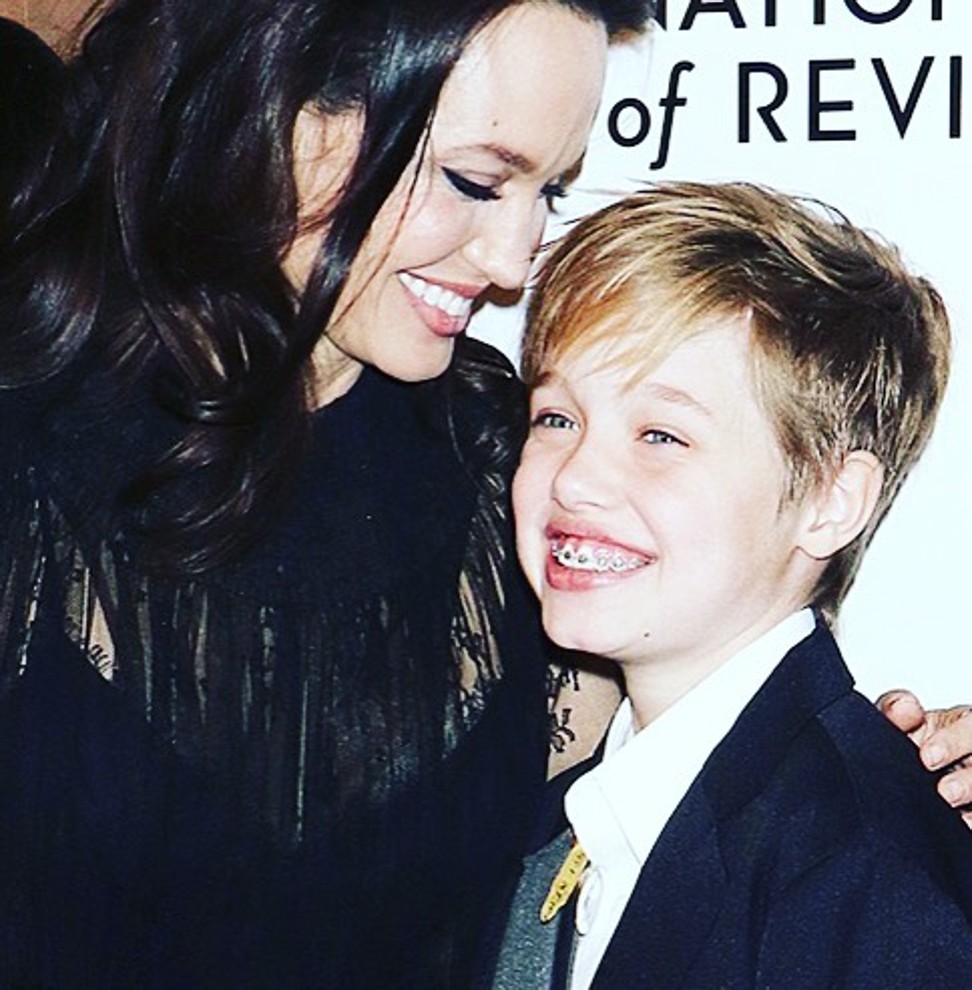Opinion / What parents should be mindful of when raising an LGBTQ+ child like Shiloh Jolie-Pitt

I was talking to a friend of mine once about the need for transgender bathrooms, but he wasn’t too thrilled about the idea. He characterised it as fodder for conservative pundits to distract and incite the public; to make them believe that liberals are causing the moral degradation of society.
My friend is a self-professed liberal. He’s anti-gun, supports #blacklivesmatter, and is disturbed by growing wealth inequality and corporate corruption. However, when it comes to trans rights, he just won’t have it. It’s too much and too far. He believes it’s an insignificant issue taking up space for major ones. “I believe in the ‘LGB’ but not the rest,” he said. His dismissal reflects a world view which has had dire consequences.
At New York Fashion Week, American trans activist and actress Indya Moore wore earrings with portraits of 16 trans people who were brutally murdered. The number since then has risen to 18 in the US.
5 young celebs who don’t conform to traditional gender roles
Despite the gains we've made in terms of LGBTQ+ rights – mostly from what we've seen through the veneer of pop culture and Hollywood – we also have to remember the ongoing pain, struggle and violence facing the community. In the US, poverty, violence and murders against trans people, especially those of colour, are disproportionately high.
Closer to home – despite some gains in Taiwan with the legalisation of marriage – we see bloodshed against LGBTQ+. Florist and trans woman Sameera Krishman was hacked to death in Kuantan, Malaysia. In the same country, Teenager T Nhaveen was tortured to death by classmates, who classified him as effeminate and gay in Penang. And how could we forget the Sultan of Brunei wanting anyone who was remotely queer stoned to death.
The irony is that with all the unjust tragedies facing trans people, they are the ones perceived as mentally unwell, while those of us with the inability to move beyond preconceptions of gender and gender expression are humanised.

Gender, no matter how you look at it, has become an increasingly sensitive and polarising topic that even the privileged can't escape. Just look at Shiloh Jolie-Pitt – who identifies as male and would like to be called John. While his Hollywood parents have been supportive, all of them have been judged and criticised by folks hell-bent on defining gender.
6 things to know about Shiloh Jolie-Pitt, LGBTQ+ teen icon
The reality is that gender is complex: mentally, physically and spiritually. According to the Intersex Society of North America, globally around 1 in 1,500 to 1 in 2,000 children are born with noticeably atypical sexual traits. Simply put, there is science that shows natural variations beyond your standard male and female boxes. So, why is so hard to believe that gender goes beyond that to how someone thinks and feels?
“In Asia, parents of trans kids feel pressure explaining these issues to friends and family,” says non-binary, trans musician and activist Vincy Chan. “They feel people will think, ‘what have the parents done for the kids to turn out this way?’."
In Asia, parents of trans kids feel pressure explaining these issues to friends and family
And beyond that, there is a superstitious element that a lot of us in Hong Kong can probably relate to. “Parents think to themselves, ‘what have I done in my former life to deserve this’,” says Chan. “Not all youth have a clear idea of who they want to be, or where to end up. So, it's crucial to have a non-judgemental, safe space to explore. There are a lot of assumed gender expectations in Asian households. Even if your family isn't [judgemental], society still is.”
The necessity of breaking down gender expectations should be familiar. A century of feminism layered with the fight for suffrage, the struggle to break the shackles of domestic servitude, the argument for a choice to do anything without preconceptions, has illuminated the topic. Now, by extension, genderqueer, trans people and intersex, are fighting for similar rights, recognition and awareness. This includes everything from addressing someone with correct gender pronouns and having gender-inclusive bathrooms, to legal recognition and breaking down the barriers to proper health care.
In Hong Kong, transgender people have to go through full gender reassignment surgery to legally change the sex on their ID and passport. This is an issue because not all transgender people are seeking full gender reassignment. It's a common misconception that being transgender is binary; that someone born one sex wants to go to the complete opposite. Then there is the issue of safety. Invasive surgery can be life-threatening, and it's unfair to require someone to go through it just for legal recognition. The individual must choose gender reassignment surgery because it feels right, not because the government tells them to.
Indya Moore: 6 things to know about the non-binary TV star
Then there is the issue of medical facilities improving their awareness. “Recently I went to the FPA (Family Planning Association) to get an IUD (an intrauterine type of birth control)," says Chan. “They used very binary, cis language when addressing me. The medical community shouldn't assume what gender you are when you're going in for check-up or procedure. There has to be greater sensitivity to gender identity, preferred names and pronouns.”
Dr Small Luk, a lecturer, counsellor on sexuality and a doctor of traditional Chinese medicine, knows the trauma of facing unaware medical practitioners all too well. Formerly classified as male, she is now legally a woman and bears the scars of her childhood as an intersex individual. Dr Luk has a condition known as partial androgen insensitivity syndrome (PAIS), basically meaning that even though born male, male sexual characteristics would not develop. So, for a long time, Luk was called “defective” and was bullied, harassed and even molested during her time at school because, although classified as a boy, she looked feminine.
Same-sex weddings: an insider’s guide to how to plan one
“I thought I was a monster,” says Luk. This was during the 1960s and ’70s, and doctors had no clue how to help Luk, even after 20 failed reconstructive surgeries. But, finally, in her later years, Luk was diagnosed correctly, and doctors encouraged her to go through reassignment surgery because her form of PAIS would likely cause cancer. Now, she is her most authentic self, an out intersex person, who prefers female gender pronouns.
“It's important for parents, teachers and counsellors to be supportive of children and their feelings toward gender,” says Luk, as someone who's been through a harrowing experience due to ignorant and unknowing adults. “When you are forced to present contrary to the way you feel, it creates feelings of hopelessness, which can lead to depression, anxiety or worse.”
Often, it does get worse. Members of the LGBTQ+ community have a suicide rate almost three times to that of their cis heterosexual counterparts.
“Parents need to be there for their kids, but it's also important for them to educate their community on gender identity issues,” says Luk. “However, if there are toxic people around you, sever ties with them and find a community that's supportive for you and your child.”
Chan agrees: “It's important to have a support network, but just generally more resources available. Resources for parents to be educated and places where kids can be in the company of other kids like themselves. I wish I had access to that when I was younger.”
What I wanted my friend to understand was that the need for transgender bathrooms is for protection and safety. I wanted him to understand that hatred towards trans people is exactly the same systemic marginalisation, disenfranchisement and violence that he is standing up against. I wanted him to understand that trans rights is a major issue.
Want more stories like this? Sign up here. Follow STYLE on Facebook, Instagram, YouTube and Twitter .

With prejudice and misunderstanding rife, Brad Pitt and Angelina Jolie’s first biological child – who identifies as gender fluid – is an invaluable icon in the global fight for LGBTQ+ rights